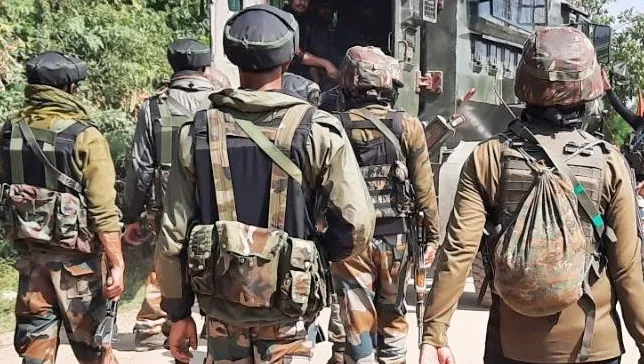What Happened to the Army Soldier Who Died from a Dummy Bomb in Training?

Synopsis
Key Takeaways
- Tragic incident highlights safety concerns
- Investigation underway for safety protocol breaches
- Integration of drone technology requires updated procedures
- Previous incidents raise alarms over military training safety
- Authorities emphasize need for rigorous training safety measures
Bhopal, June 24 (NationPress) A routine training exercise took a tragic turn for an Army soldier on Monday evening when a four-kilogram iron dummy bomb fell from a drone and struck him on the head during a simulation at the Army Firing Range located in Bhopal's Sukhi Sewania region.
As reported by police, the bomb—designed for a controlled drop during the training—plummeted from an altitude of approximately 400 feet, impacting Havildar Vijay Singh directly. Unfortunately, the blow was fatal, resulting in Singh's immediate death. This training session was part of a larger initiative aimed at preparing personnel for drone warfare.
Havildar Singh, aged 37, was originally from Uttarakhand and was assigned to the Army Office in Bairagarh, Bhopal. He had arrived at the firing range for scheduled routine drills when the incident occurred.
Initial investigations by police indicate that the dummy bomb was accidentally released from the drone. Authorities are currently looking into whether a technical malfunction or a lapse in safety protocols led to this unfortunate occurrence.
Reports suggest that the dummy bomb, which was mounted on a drone for training purposes, veered off from its intended drop zone and struck the soldier. Emergency services rushed him to the Army Hospital, but he tragically succumbed to his injuries during treatment. Police were quick to arrive at the scene following the notification.
An officer from Sukhi Sewania Police Station confirmed that a case has been filed, and Panchnama proceedings have been completed. “A post-mortem examination has been conducted, and the police are examining potential causes, including equipment failure or a safety oversight,” the officer stated.
This incident has sparked renewed scrutiny regarding safety protocols during high-risk training operations.
Experts in defense emphasize that as the integration of drone technology into military strategies continues to grow, standard operating procedures must adapt correspondingly.
In an unrelated event last month, two constables suffered severe injuries when a hand grenade detonated during a mock drill in Bhopal. This explosion occurred during a training exercise at the 25th Battalion, where security personnel were showcasing the use of grenades as part of their preparedness drills. Head Constable Vishal Singh and Constable Santosh Kumar were both seriously injured in this blast.









